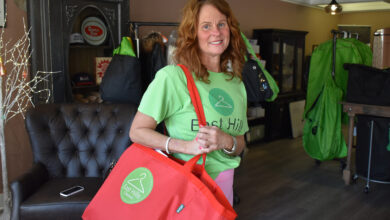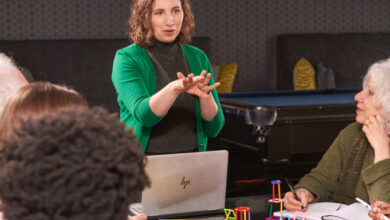When Education Entrepreneurs Face-Plant | American Enterprise Institute

Over the years, I’ve had versions of the same conversation with lots of education CEOs, advocates, and entrepreneurs. They’ll explain that they’ve got a good product or program and are trying to go big (promote legislation, launch a national initiative, or what-have-you), but they’re frustrated to suddenly find themselves sucked into distracting “culture wars.”
I usually get called when there’s been unexpected blowback and the questioner wants to know, “How do I get these people to focus on the good work we’re doing rather than on that other stuff?”
For instance, I had a call the other day with someone running a social and emotional learning program. He told me that their program has done well in red and blue states. “It’s not political,” he explained. “It’s about durable, in-demand skills. It addresses shared concerns. So we’ve been able to avoid a lot of the posturing.”
But his organization recently got active in a push for legislation and funding, and he was wondering why he was now catching flak. As he put it, “We’re already in a bunch of red states. We’ve got a track record. Why are they suddenly up in arms?”
Why? Well, when you’re selling a product or program, you’re pitching someone a solution. But when you’re promoting policies or engaging in advocacy, you’re offering something very different: an agenda, a worldview, a value-laden vision.
It’s the difference between setting up a free health clinic on the one hand and promoting a vision for reforming Medicaid on the other. It’s safe to say you won’t get many complaints about free, optional pediatric visits. But things get much more complicated when that friendly offer of assistance morphs into something bigger, more compulsory, and more intrusive.
You’ve now moved beyond talking about a product or service to what should be mandated, whether public funds should be spent, or how the rules should be written. Entering that fray can generate a lot of conflict and requires a lot of trust. It’s why skeptics or muckrakers who haven’t paid much attention before will (quite appropriately) start scrutinizing what you say, write, or tweet and who’s funding you.
It can be easy for those who’ve built terrific programs to drink their own Kool-Aid. Their success attracts plaudits and funding. They believe in their model, and they’re confident that they can help solve a problem “at scale.” The difficulty is that they very quickly leave behind the things they know and wade into areas where they’re no longer on firm ground.
That distinction is crucial. I’m not suggesting that their success is phony or that their expertise is fraudulent. I am saying that there’s a tendency to confuse one kind of expertise (running a discrete program) for a very different kind (changing rules, regulations, funding, and policy).
This kind of dynamic comes up all the time with reading and math programs. Entrepreneurs and CEOs will often explain, with much exasperation, that they don’t want to get caught up in the reading and math wars. They’ll denounce the politics of it all and say, “I just want to do what works. I don’t want to take sides.”
Okay. But those “sides” are almost inevitable when we move from an optional, discrete program to determining what standards, texts, curricula, or instructional methods will (or won’t) be mandatory for classrooms in a school or state. It doesn’t matter if you dislike “politics”—politics is just the label for how these (inevitable) disagreements play out.
There aren’t easy answers here. After all, when promising models exist, I understand the inclination to want to extend their reach—even if the results often disappoint. (For one of the best treatments of this, even 30 years later, check out Richard Elmore’s classic 1996 article “Getting to Scale with Good Educational Practice.”)
For what it’s worth, here are two things to keep in mind.
First, those who’ve created successful models tend to soft-pedal the off-putting particulars in favor of language calculated to woo education insiders. But they often fail to appreciate how this same soft-shoe routine can alienate the many people who are skeptical of ed-school buzzwords and attracted to rigor, fueling pushback in red and purple states. And if the program does get adopted, it’s a denuded version that’s primed to disappoint. It’s vital to understand that tension and manage it from the get-go.
Second, recognize there are many kinds of expertise. Knowing how to run a program is different from knowing how education finance works or what it takes to adapt a program to new circumstances or how to navigate an unfamiliar political context. A successful program applied at scale calls for an honest-to-goodness “diversity” of skills, knowledge, relationships, and experience. This means finding ways to identify the requisite mix of expertise up front, then assembling a team that can cover all the bases, before you’ve stumbled hip-deep into the muck and mire.



